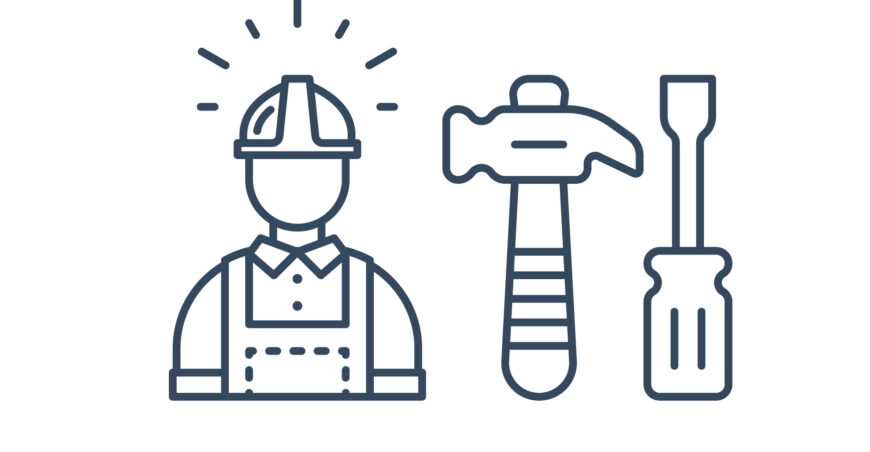Let’s look at things to consider before hiring a contractor to do work on your commercial property. Our friends at Bleuwave Facility Management helped us put together this helpful fact sheet. At Bleuwave, we recognize that your home or commercial building project is one of the biggest investments of your life. Before entering into a transaction of that size, we always suggest that clients do their homework, check references, and ask lots of questions to make sure they are a good fit with the contractor. Once construction has commenced, it can be very costly and challenging to make changes to your plans, so take time to consider what you want before getting started. As they say, “An ounce of prevention is worth a pound of cure,” and that most definitely applies here.
8 things to consider before hiring a contractor:
1. Always check references and not just the ones the contractor provides you. There is usually easily available information from the local municipalities and the building department. See if they have other jobs going on in the area and speak to those owners for a more candid view. Ask the trade partners and supply chain about the overall character of the contractor as well.
2. Go check out a few similar projects of the potential builder. Are the project sites neat? Does the project manager seem like someone you could work with? Are permits displayed? What’s the vibe? Does the site and workers appear safe?
3. Only start construction after signing a written agreement. Read and understand the contract and have a lawyer review if necessary. You must comprehend the terms of the contract.
4. Hiring a general contractor based solely on price is a common mistake that people make when choosing a contractor, and it can also be the one with the most ramifications. It is tempting to look at proposals that look the same and go with the lowest one. However, those proposals typically look the same but have significant differences in the quality of craft, materials used, or budgeting manipulation (contractors who charge less upfront then create change orders to increase the cost of the project). All of these concerns should be addressed upfront in the bidding process and during contract negotiations.
5. Specify a construction schedule and get it in writing with verifiable milestones so everyone can monitor the progress. Require the contractor to notify if there is a change to the plan. A schedule that appears too short is an indication that quality may be jeopardized, and one that seems too long indicates a lack of commitment or available resources for the project
6. Make sure you discuss and document how payment installments and invoicing will occur. Verify that invoices will be issued at agreed intervals so money can be ready on a set schedule. Assure that a receipt or a lien waiver accompanies each payment.
7. Identify withholdings for the end of the project; this is often called retainage. It is an agreed-upon portion of the payment to ensure the contractor has good reason to complete the project. A typical amount is 5% – 10% until the contractor fulfills their contractual obligations.
8. Have a regular means of communication, such as a weekly telephone call, meeting, or progress email. The better contractors typically have an interactive website or app that allows for easy communication and sharing of pertinent information.
J.J. Levenske, President
O: 480-744-0000
M: 218-251-8826
2350 E Germann Road, Suite 25
Chandler, Arizona 85286
















